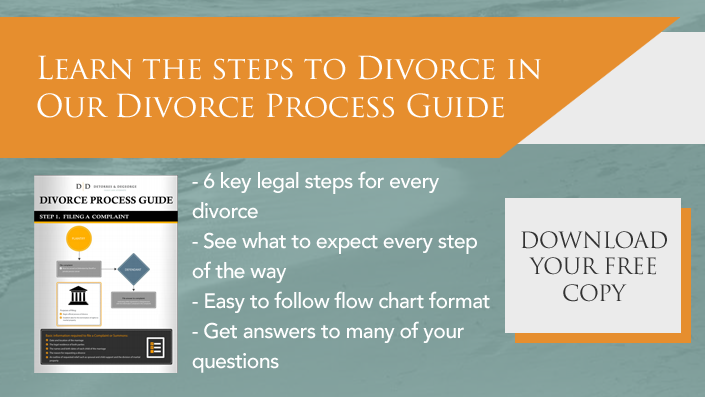 You’re certainly not alone if you find yourself unsure of how the family court system works – especially in terms of what to expect at a divorce court hearing. Many people who are going through the divorce process are doing so for the first time, and they are often curious about what is expected of them, and maybe more importantly – what they are expected to bring with them to their hearing. As it turns out, what you are required to have with you at each court event varies depending on where you are in the divorce process.
You’re certainly not alone if you find yourself unsure of how the family court system works – especially in terms of what to expect at a divorce court hearing. Many people who are going through the divorce process are doing so for the first time, and they are often curious about what is expected of them, and maybe more importantly – what they are expected to bring with them to their hearing. As it turns out, what you are required to have with you at each court event varies depending on where you are in the divorce process.
Case Management Conference
The Case Management Conference is often the first court event. If you and your spouse are both represented by an attorney, it is unlikely that you will even appear for this court event. Unless there’s a disagreement about the terms of the Case Management Order, the attorneys generally submit the order prior to the hearing date. The judge will simply review it, make any changes he or she thinks is necessary, then sign and return it to the attorneys. These orders set forth the schedule for discovery to take place, when expert reports will be due, and who will pay for the cost of the expert, if necessary.
Early Settlement Panel
When you appear at the Early Settlement Panel, you will be presenting your case to a panel of local attorneys who volunteer their time to give you an opinion on what they believe the judge would order if your case were to proceed to trial. Prior to the ESP date, the court will send you or your attorney a court notice that includes an outline of the issues you are expected to address. You, or your attorney, will prepare a written statement outlining your position on these issues. It is generally a good idea to attach your Case Information Statement – or “CIS” – to your submission, as this will show your financial circumstances and may assist the panelists in making their recommendation.
Mediation
Following ESP, you will attend mediation with an attorney who volunteers two hours of his or her time for free in order to help you reach a resolution in your case. Again, it’s recommended that you bring your ESP statement, CIS, and any expert reports you may have obtained, such as a business valuation. Having all relevant information with you will assist the mediator in making the best use of your time together. Many mediators ask that you provide these documents in advance so that they can be prepared to work on your case right away, rather than having to spend the time that you are together getting up to speed on your case.
Motion Hearings
A motion hearing is a different type of court event, as all documents that you wish to address with the judge must be submitted in advance, at the time of the filing of the motion. If you do not attach a document to your motion package, the judge is not supposed to consider it, as the other side has not had an opportunity to review it in advance. It is very important that you attach everything that you wish the judge to use in rendering his or her opinion because you will not be permitted to do so later.
Divorce Hearing
If you have reached a settlement of your case, the last court event is known as the “uncontested hearing.” You will need to have copies of your signed settlement agreement, as well as copies of a Final Judgment of Divorce. If you are going to court without a lawyer, you should be sure to contact the court in advance to find out how many copies of each item you will need.
If you are interested in learning more about the divorce process, contact the attorneys at DeTorres & DeGeorge to schedule a consultation.


 START LIVE CHAT
START LIVE CHAT











